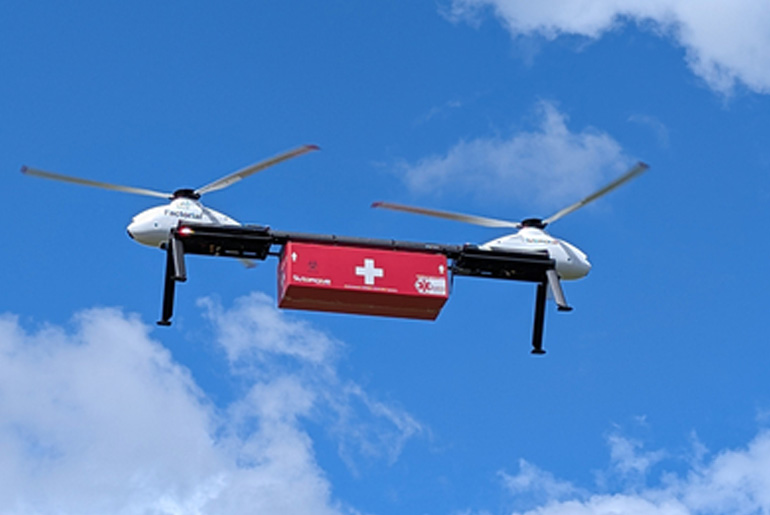Avidrone Aerospace Inc., a Canadian company that develops long-range, dual-use unmanned aerial systems (UAS), has received the first solid-state lithium-metal battery cells for drone use from Factorial Inc. (Factorial), a pioneer in the solid-state battery technology market. This milestone signifies the first flight deployment of Factorial’s unique FEST® (Factorial Electrolyte System Technology) technology as well as the company’s first shipment in the drone industry.
For demonstration flights aimed at assessing energy efficiency, power discharge, payload capacity, and range under real-world operating conditions—such as high altitudes, fluctuating temperatures, and prolonged vibrations—Avidrone will incorporate Factorial’s solid-state cells into its high-endurance cargo drone platform.
According to Avidrone’s preliminary modeling, FEST® technology has the potential to quadruple the aircraft’s range for a particular payload, which would revolutionize drone-based delivery, surveillance, and emergency response.
“This delivery is a major step forward in bringing our battery platform to the skies,” stated Siyu Huang, CEO of Factorial. “Avidrone’s specialized platform is the perfect testbed to prove how our high-energy, lightweight lithium-metal technology can unlock new levels of range and performance in aerial systems. Drones are not just an emerging market – they’re a strategic priority for national defense, critical logistics, and infrastructure resilience, and we see this as the first of many aerospace applications for our solid-state batteries.”
With military applications alone anticipated to reach a market worth of $65 billion by 2032, the worldwide UAS industry is expanding rapidly, with projections indicating a $36.1 billion growth from 2024 to 2028. In addition to a variety of commercial and industrial applications, UAS are now crucial for electronic warfare, intelligence, surveillance, and reconnaissance (ISR), and precision-guided missions.
Longer flight durations, higher cargo capacities, and an extended mission range are made possible by Factorial’s cells, which have an energy density up to 50% higher than traditional lithium-ion batteries. Factorial’s battery cells offer the perfect energy-to-weight profile for next-generation UAVs thanks to its internally verified discharge performance designed for high-power, lightweight applications.
“In unmanned systems, weight equals range – and range defines the mission,” stated Scott Gray, Founder and CEO of Avidrone Aerospace. “Factorial’s solid-state cells give us a critical edge in endurance and payload, unlocking new capabilities for defense, logistics, and beyond. We’re proud to be the first to take this groundbreaking technology airborne.”
Factorial is still dedicated to driving the shift to electric vehicles, but it now sees the aviation industry as a growing area with strategic alignment. The need for high-performing, locally produced drone batteries offers a chance to apply important performance input, engage early consumers, and speed up production maturity. Factorial’s EV roadmap immediately benefits from these features. In addition, the company’s U.S.-based platform helps the aerospace and military industries look for safe, domestically produced energy storage options.



